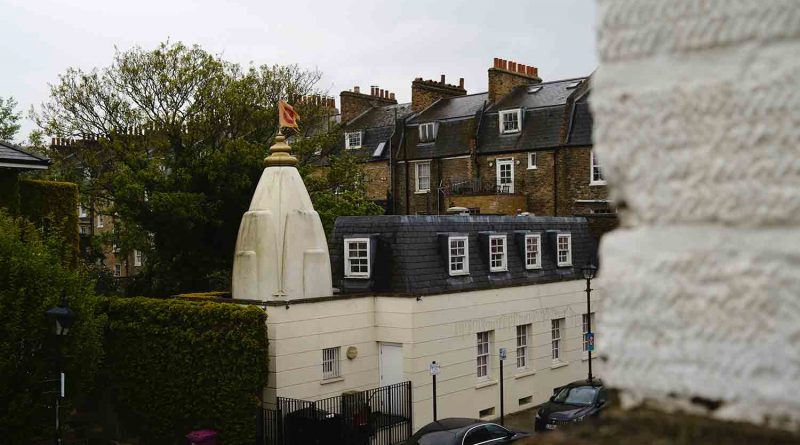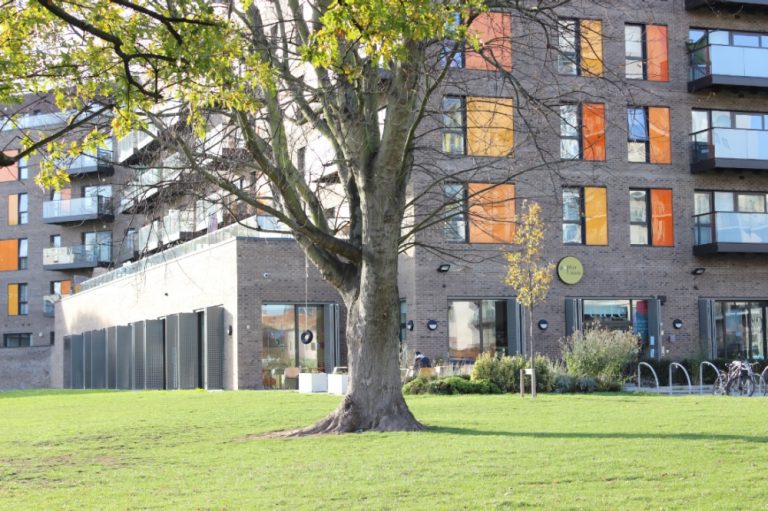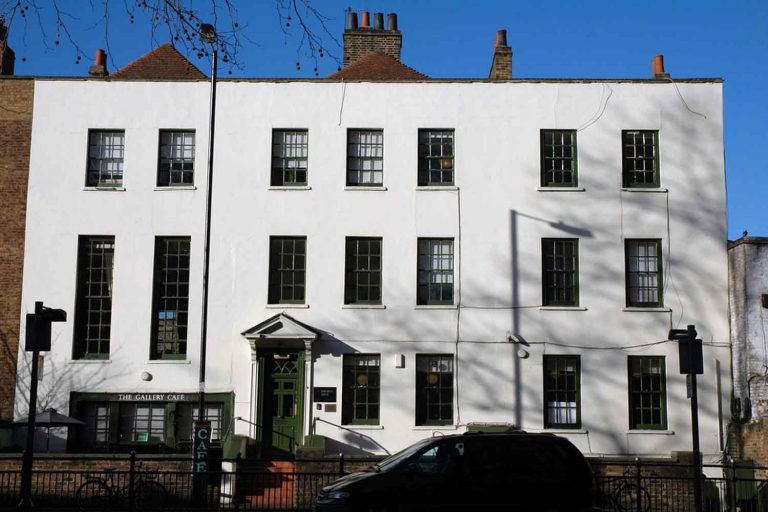The many lives of Pragati Sangha Hindu temple before reaching its final incarnation
Pragati Sangha’s journey from dilapidated garages to a permanent Hindu temple has involved a lot of love, perseverance and 1.5-tonne statues.
The scent of incense lingers in the air as you step off the street into the Sangha, and the muffled sound of socked feet padding towards you welcomes you into the space. It wasn’t always this way; stockinged feet were once firmly wedged into wellies as the temple rose up from a muddy building site to the only Bengali Hindu Temple in Tower Hamlets.
The roots of the Pragati Sangha trace back to the early 1970s when a group of Hindu Bengalis embarked on a journey to establish a permanent haven where spirituality could flourish.
What began as a humble gathering in rented halls for worship and celebration soon blossomed into a determined community with a singular purpose: to create a sanctuary where the traditions of Hinduism could thrive.
Mukul Chandra Ray, the head of the temple, has been there from the beginning of the Sangha’s search, securing a freehold, seeing two rounds of demolition, countless planning applications and finally, the rebirth of the Pragati Sangha as you see it today.
I think about this area as a garden with lots of different kinds of flowers not just a marigold or a rose.
Mukul Chandra Ray
‘Many Hindu people lived in East London, mostly in Whitechapel. We all shared the need for somewhere to congregate and pray.
‘We used to meet in Toynbee Hall on Commercial Street, just by Aldgate underground, and we also spent time in an old factory on Brick Lane and the community hall in Club Row. It was around three or four years that we moved around in different places,’ said Mukul.
In 1985, after years of celebrating Pujas (ceremonial worship) in these temporary spaces dotted across Tower Hamlets, a small number of devotees, including Mukul and Shekor Tarat, one of the founding members, formed a smaller group with a clear mission: to find a permanent home.
After searching high and low for space, they came across a small plot of land on the corner of Rhondda Grove that, at the time, belonged to the owners of number 415 on Mile End Road.
‘When we visited the plot, it was just a strip of three old, dilapidated garages at the back of the house garden. The space was very messy and bad-looking, but we could see the potential,’ Shekor said.
Jumping at the opportunity and vision of future permanency, they purchased the freehold of the land for £45,000 and began planning. Months of demolition and clearing took place, and they started building from the ground up.
‘We had to start everything from scratch because there was nothing there at all; the kitchen, bathroom facilities, plumbing, electrics and flooring all had to be built new,’ Shekor explained.
The transformation of the Rhondda Grove space into a sacred sanctuary was a labour of love that spanned decades and marked a pivotal moment in the temple’s history, providing a permanent home where devotees could gather to honour their faith and heritage.
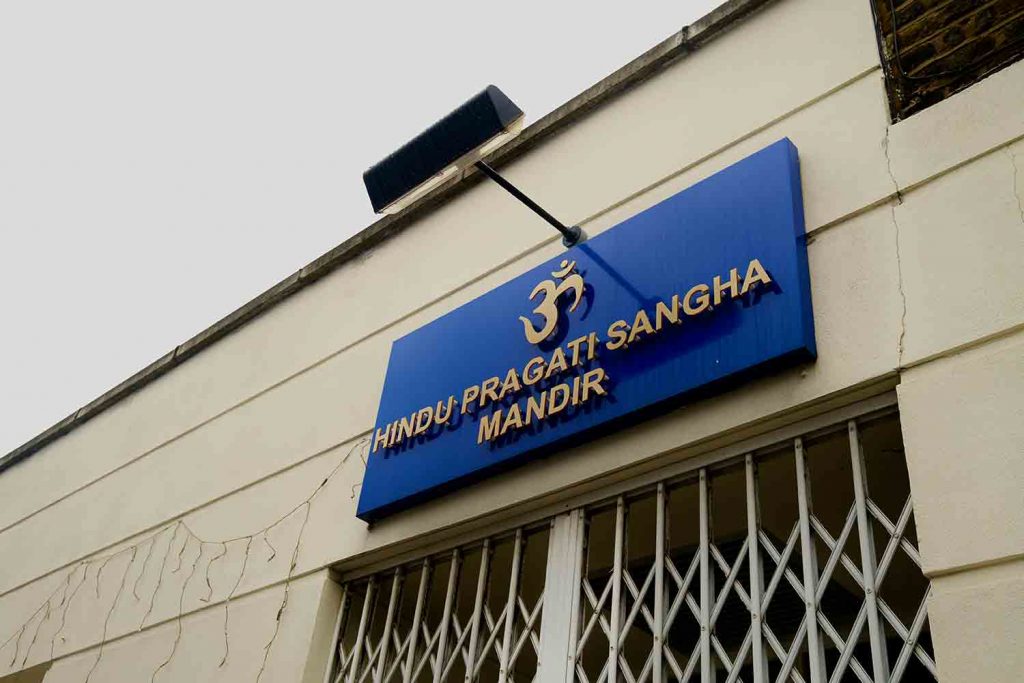
‘We were all so proud of our community and the new building; knowing that we had the freehold and could stay meant so much to us. People came from all over England to visit when it was built,’ Shekor continued.
Mile End has always been known for its diverse community; due to its proximity to the docks, it has long been a multicultural area, attracting immigrants from around the world. Beyond finding a suitable space to build, Mukul explains why they chose Mile End,
‘A lot of devotees at that time were living around the area in Tower Hamlets, so we initially chose the garage space for people to be close. But then, at a later date, we realised it was such a great place to be in the middle. We have devotees from the north, south, east, and west of the country, and they can all come easily to Mile End. It’s a great central area for everyone.’
Beyond having a convenient central location, Mukul goes on to add why Mile End, in particular, felt like a safe and welcoming place for the community to put down roots,
‘People like variety. Otherwise, areas can get monotonic. When an area has everything, a mosque here, a temple there, a church there, a Sikh temple over here, it makes a really rich culture for people to live in. I think about this area as a garden with lots of different kinds of flowers not just a marigold or a rose. Our devotees are very proud and grateful we are here.’
In 2004 the Sangha knew they had to expand their premises. To do this, they needed helping hands and much more capital. Enlisting 30-35 more members in 2005, they decided it was time to build up, out, and, more importantly, build a temple.
‘We knew it would be a very, very big job. We instructed a project manager who consulted with Tower Hamlets council. Thankfully, the planning permission passed in 2005, and so the demolition began again,’ Mukul said.
The ground floor site they first built in 1985, where the three garages once stood, was completely demolished and again, they started from scratch.
Needing around £650,000 to complete the building works, members at the time all donated around £6,000 each, and they worked hard to fundraise the rest, calling on community donations and applications to the charity bank. Slowly, the work began and they officially opened the building as you see it today in 2012.
A three-storey architecturally designed structure, complete with a dining hall, large kitchen, temple and additional rooms, stands proud. The hall, directly to the left when you walk in, became the permanent home of the ‘Mandir’ (temple) of Pragati Sangha.
Looking out onto Rhondda Grove, the temple windows are dressed with red velvet curtains, and a chandelier hangs at the end of the hall, illuminating the intricate shrine. A traditional 4m tall white stone dome crowned with a gold finial and flag sits as a roof above the shrine, completed by Martin Lee Associates architecture firm.
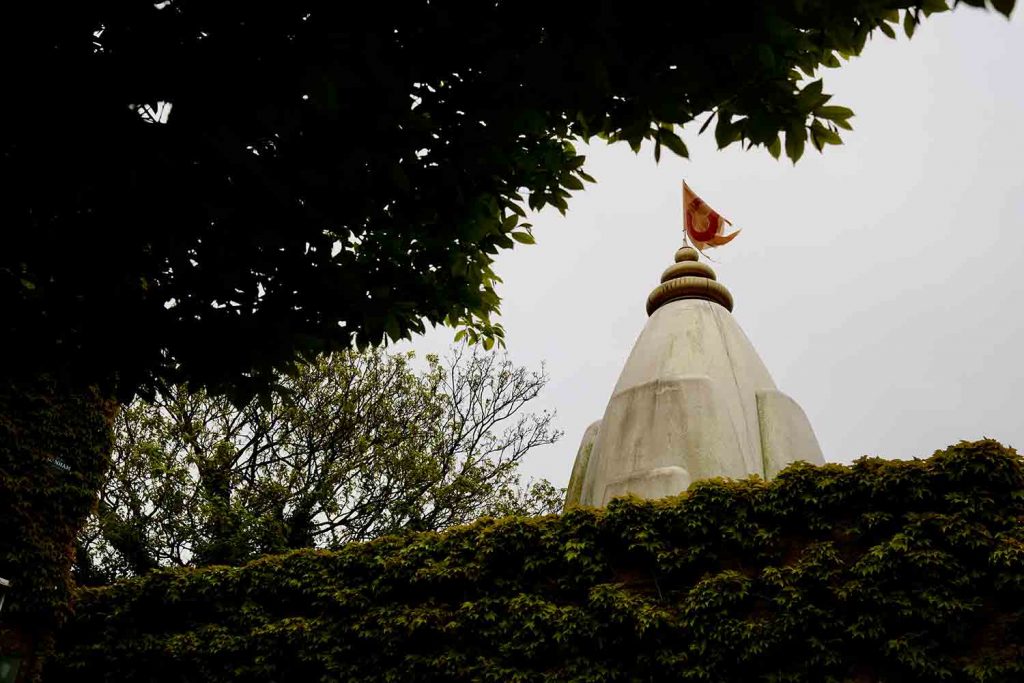
The temple’s architecture itself whispers tales of tradition and devotion. Adorned inside with intricate carvings,
‘All of the woodwork you can see in the temple and surrounding the shrine was all brought in from Calcutta, India. Even all of the marble statues originally came from Jaipur, they travelled from Jaipur to Calcutta and then when they arrived in Calcutta, they had the fine-tuning of all of the colouring, and then from Calcutta, they were shipped to London,’ said Shekor proudly.
The early founding members of the Sangha selected the marble statues that delicately frame the internal shrine. Shekor himself went to Jaipur to choose the marble deities that would live in their new permanent home in Mile End.
‘The statues were very costly—they cost us about £10,000. And they are very heavy,’ Shekor laughed. ‘We had to crane them in. The middle one weighs about 1.5 tonnes. Even with the crane, we struggled and had to enlist the help of some builders.’
Beyond its role as a place of worship, the Pragati Sangha Hindu Temple serves as a cultural hub, hosting a myriad of events and activities that celebrate diversity and Hindu traditions. Since the Sangha expanded, Mukul has seen enormous growth in attendance.
When asked if they have plans to demolish and expand for a third time, Mukul chucked and explained that they would love to, but as they are in the Tredegar Square Conservation Area, theyare at their limit with extensions.
‘If we had the space we would have extended already. Even building up would mean changing the appearance and view of the surrounding buildings so we can’t,
‘The only option is to go horizontally to the left into the garden next door, to be honest, we are after that piece of land, but they won’t sell it, so that’s it. We wouldn’t be able to move from here because everything is just too expensive now.’
As the sun sets over the temple’s white dome, casting a circular shadow on Rhondda Grove, imagining the derelict garages in comparison to their permanent fixture, one cannot help but be in awe of the Sangha’s story of determination and perseverance.
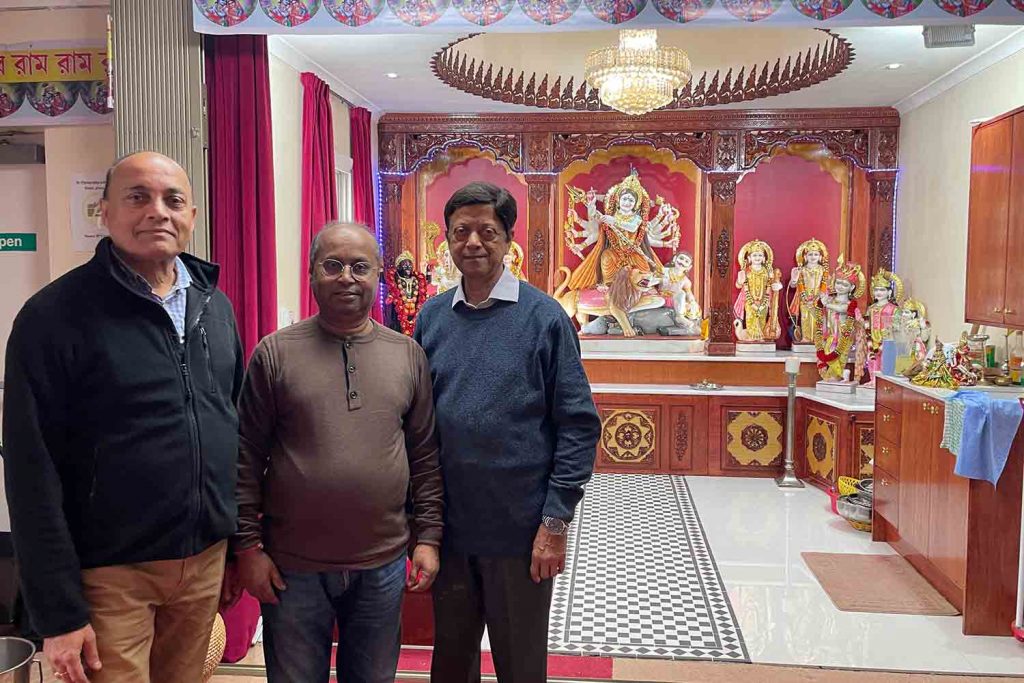
If you liked reading this, then why not read Inside Mile End’s Pragati Sangha temple as the Bengali Hindu community celebrates Dolyatra, their Holi Day

